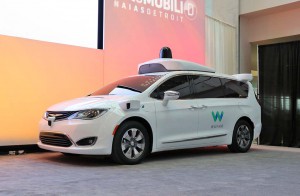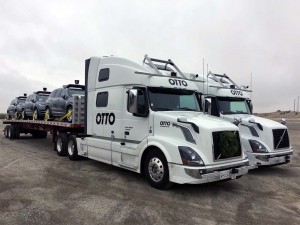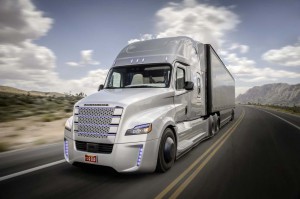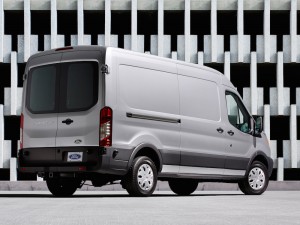Waymo, the autonomous vehicle spin-off of Google, is the latest on an expanding list of companies looking to develop self-driving trucks.
Now a subsidiary of Alphabet Inc., Google’s parent, Waymo said it believes that fully driverless trucks could take over long-haul duties in the future, though human drivers might continue to be needed for shorter routes, especially those involving pickup and deliveries. Other companies are looking at ways to go driverless even on short-haul routes.
Separately, a new report from the International Transport Forum warned that anywhere from 50% to 70% of all trucking jobs could be eliminated by end of the next decade through the introduction of autonomous and driverless vehicles.
“Driverless trucks could be a regular presence on many roads within the next 10 years,” José Viegas, Secretary-General of the ITF, said in a statement released last week. “Manufacturers are investing heavily into automation, and many governments are actively reviewing their regulations,” he continued, adding that “Preparing now for potential negative social impact of job losses will mitigate the risks in case a rapid transition occurs.”
(Uber fires autonomous vehicle chief Levandowski. To see the story, Click Here.)
The push for autonomous and fully driverless vehicles has rapidly escalated in recent years. In May 2015, Daimler AG’s Freightliner subsidiary received the first-ever license plate for an autonomous truck for its prototype Inspiration model. It quickly began running routes around the state of Nevada, then Daimler Truck head Wolfgang Bernhard emphasizing advantages such as the ability to run constantly.
“An autonomous system never gets tired, never gets distracted,” Bernhard said. “It is always on 100%.”
But he and other company officials told TheDetroitBureau.com that, at that time, they would focus on using autonomous technology to assist, rather than replace human drivers. Since then, the big push is to go the next step and go fully driverless.
Last October, start-up Otto – founded by former Waymo engineer Anthony Levandowksi – made headlines by using its own driverless prototype to deliver a load of beer for Anheuser-Busch, driving it 120 miles across Colorado, from the brewery to a distribution center.
Otto is now a subsidiary of Uber, which just launched its own trucking equivalent of ride-sharing. Uber CEO Travis Kalanick is a big proponent of driverless vehicles, asserting that the technology will lower the cost of using ride-share services to the point it would become cheaper than owning a private vehicle. He is betting the same will be true for driverless trucks.

Waymo is likely to use tech similar what is found on its new autonomous Chrysler Pacifica prototypes.
Otto has become the centerpiece in a legal battle between Uber and Waymo, the Alphabet subsidiary claiming Uber and Otto are using stolen intellectual property stolen when Levandowski left Waymo. The ride-sharing service fired the 37-year-old engineer last week.
(Uber adds new freight-sharing service. Click Here for the story.)
However the court case shakes out, few doubt that the development of driverless trucks will move forward. “We’re taking our eight years of experience in building self-driving hardware and software and conducting a technical exploration into how our technology can integrate into a truck,” Waymo said in a statement.
Experts believe driverless trucks will be safer and, by eliminating the federal restrictions placed on drivers as to how much time they can spend behind the wheel, the heavy haulers would be able to run around the clock, potentially trimming significant amounts of time off cross-country routes.
Ironically, another factor driving interest in autonomy is the ongoing shortage of professional truck drivers.
At worst, the International Transport Forum study estimated 4.4 million out of 6.4 million trucking jobs could be eliminated by 2030 in the United States and Europe.
How many ultimately go will depend, in part, on how broadly driverless technology is adopted. The general consensus is that such vehicles would readily fall into use on medium and long hauls, where drivers simply transport cargo from factory to store, for example, or between distribution points. There, local employees could handle loading and unloading duties.
The bigger challenge would be to put them into operation on delivery routes, such as those run by FedEx, the Post Office or UPS – though the potential financial savings could be enormous, experts contend.
A variety of solutions are being proposed for the so-called “last mile” challenge, such as getting a package from the truck to a consumer’s door or a store’s counter.
(Judge calls for criminal probe in Waymo/Uber trade secrets case. Click Here for the story.)
In the meantime, several manufacturers are working up short to medium-range driverless delivery vehicles, including Ford and Daimler. Both have hopes of putting their first models into production no later than 2022.



